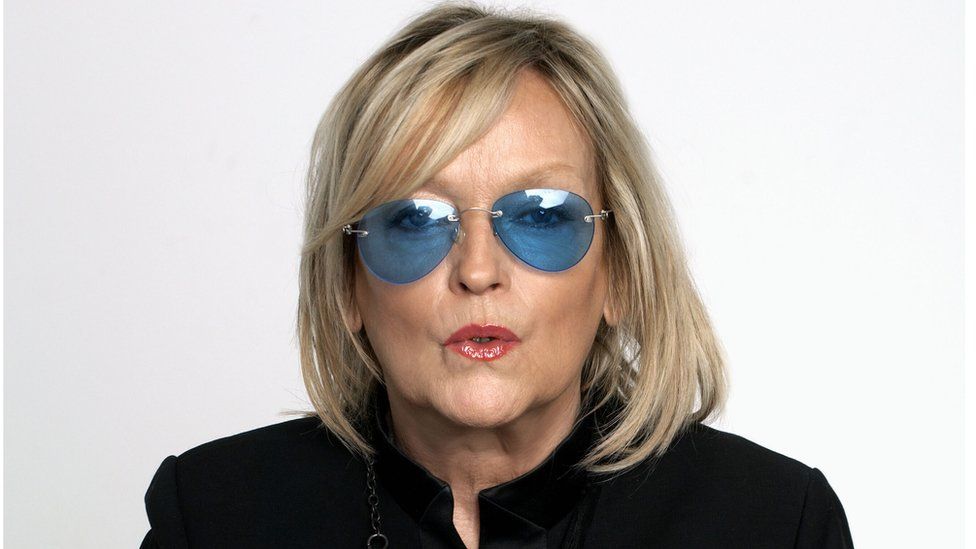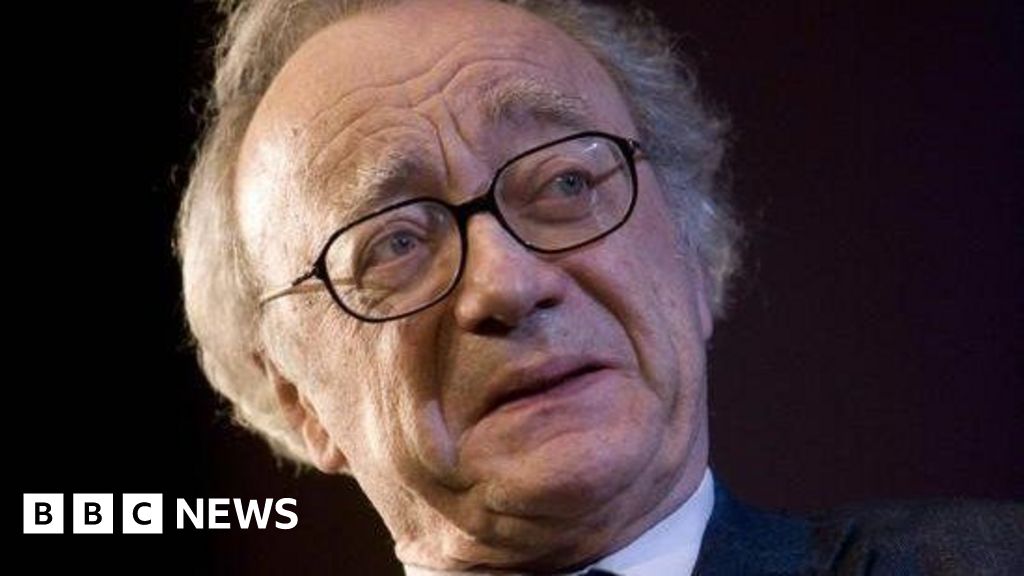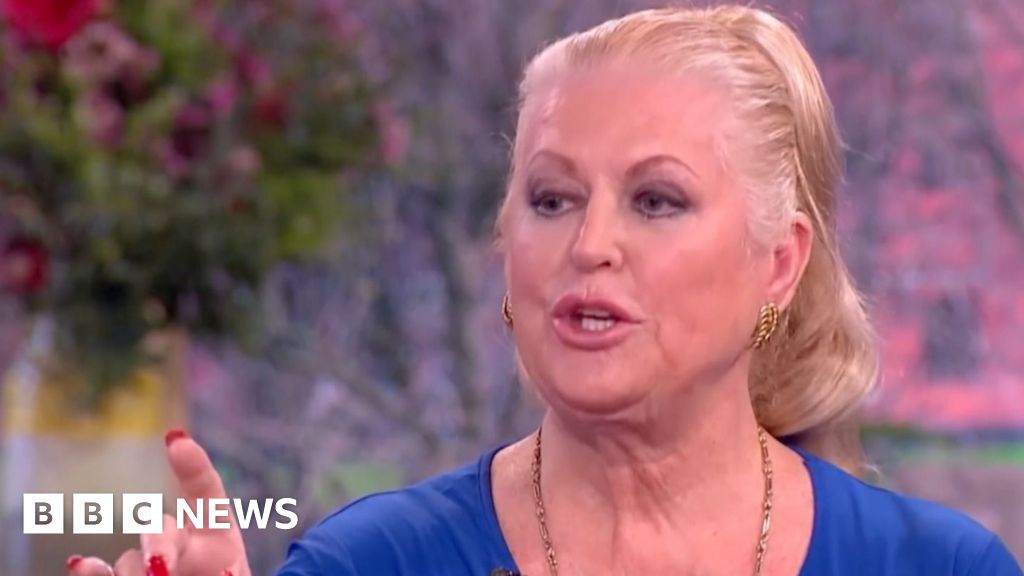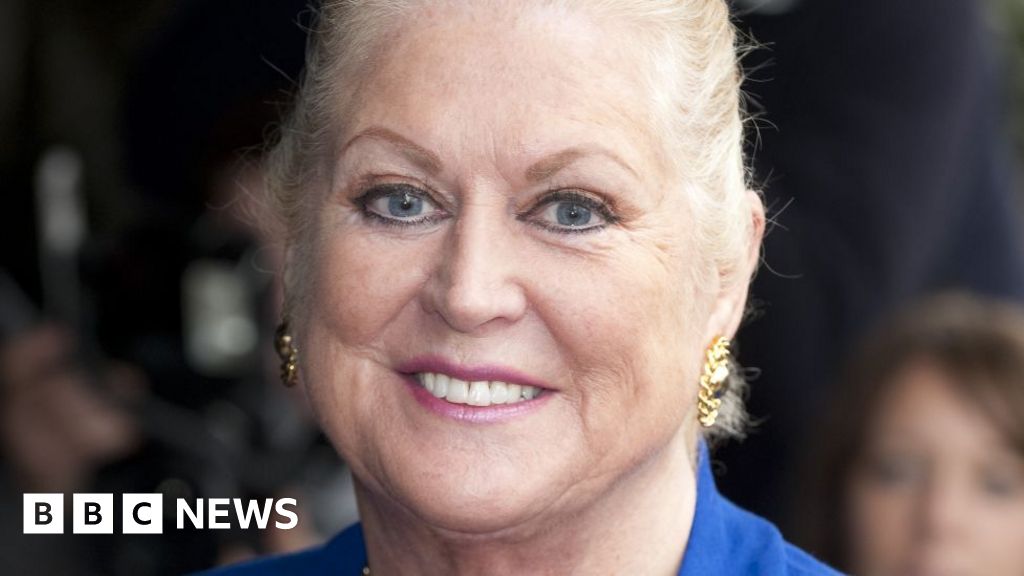ARTICLE AD BOX

As the first female presenter on BBC Radio 1 and the station's longest-serving DJ, Annie Nightingale was one of the UK's most respected music broadcasters.
A former journalist, she also fronted The Old Grey Whistle Test for the BBC and made a number of music documentaries.
She was famed for her wide knowledge of musical genres, from prog rock through punk to the dance and rap of the 21st Century.
Independent mind
Anne Avril Nightingale was born in Brentford, west London, on 1 April 1940. Her very first word was "music".
Her father Basil had inherited a wallpaper business, but had no interest in it. Her mother Celia was frustrated by her own lack of a career. An only child, Annie became acutely aware that the marriage was unhappy.
She was sent to a Catholic boarding school at the age of five, although it was not the family religion. She became fascinated by the images of the Virgin Mary on the walls, collecting copies of them as if they were pop stars.
Image source, Getty Images
Image caption,Annie Nightingale eloped to marry her first husband after her parents threatened to make her a ward of court
Later, Nightingale won a scholarship to the independent Lady Eleanor Holles School, but spent much of her time hanging out in coffee bars.
Having exhausted the school's patience, she did a course in journalism at the Regent Street Polytechnic.
"I hated coming from the suburbs, but at least I could always get to London," she recalled. "I could always get to the action."
Elopement
At the age of 19, she began a relationship with a married newspaper reporter. Her parents tried to make her a ward of court, but the couple eloped to Brighton and later married.
They had two children, but the relationship did not last. She got a job as the only female reporter on the Brighton Argus and began writing a music column called Spin with Me.
All the big groups of the 1960s played Brighton, so Nightingale grabbed the opportunity to interview her idols. These included the Beatles, with whom she struck up a lasting friendship.
Image source, Getty Images
Image caption,Annie Nightingale at home - surrounded by records - in 1964
She became a trusted member of the Fab Four's inner circle, always careful not to divulge too many of their secrets - she knew about John Lennon and Yoko Ono's relationship months before it was made public.
Her break in radio came with the BBC, where she found herself doing features from an unmanned studio in Brighton. However, with her long blonde hair and Sixties-chick looks, it was inevitable that she would move into television.
That's For Me, a short-lived pop programme on Rediffusion TV, brought Nightingale to a wider audience. It involved viewers writing in to request the appearance of a particular band, and getting to meet their heroes backstage.
"It's rather like being a fab fairy grandmother," she told Fabulous 208 Magazine in 1965.
Image source, Getty Images
Image caption,Annie Nightingale became the lone female voice on Radio 1 in 1970
Husband substitutes
When the BBC launched Radio 1 in 1967, it became her ambition to join the station. But BBC managers stuck rigidly to their all-male line-up.
"They said radio DJs were 'husband substitutes'," Nightingale recalled. "I found that ridiculous."
Eventually the BBC relented, but she found it hard going. During her first broadcast, she hit the wrong button and the station ground to a halt.
"Nobody showed me the technical side," she said. "All the men had learned on the pirate ships. It was terrifying. I had a lot to prove."
In fact, she felt that some wanted her to fail, complaining loudly in her headphones about the choice of music while she was on air.
She found a soulmate in John Peel, who was also famed for his refusal to adhere to BBC playlist protocol. Her knowledge and enthusiasm carried the day, but it would be another 12 years before Radio 1 employed Janice Long as a second female presenter.
Nightingale started with a Sunday evening show before moving on to a late-night prog rock programme.
Image source, Getty Images
Image caption,Nightingale presented BBC TV's Old Grey Whistle Test, where she encouraged the broadcasting of punk
She never wanted to be a mainstream daytime presenter and hated making the personal appearances that Radio 1 bosses encouraged.
"As a night-time DJ you aren't obliged to play the playlist," she said. "You don't have to be an entertainer. You have to really know your music, but you can also experiment."
By the late 70s, she was presenting the Sunday Afternoon Request Show, which became essential listening for a generation of teenagers.
Punk
Nightingale also embraced punk. "It was very important, because by then rock music had become part of the establishment, so something had to come and blow it out of the water."
She brought her love of changing music styles to The Old Grey Whistle Test, which she began presenting in 1978.
Out went the dependence on rock, blues and country that had dominated the programme during the years of "Whispering" Bob Harris. Nightingale ushered in punk and new wave.
By the mid-90s, Nightingale was presenting The Chill Out Zone, in which she featured dance music in the small hours. She was also travelling the world making a series of music documentaries.
During one of these trips, she was viciously mugged in Havana, Cuba. The attack shattered her right leg and she had to be airlifted back to the UK for treatment.
She also had a narrow escape after being slipped a dose of "date-rape" drug Rohypnol while she was working in Iraq.
Liam Gallagher presenting Annie Nightingale with a Guinness Book of Records certificate in 2010
With the coming of the internet, she found herself broadcasting to a worldwide audience. Nightingale's championing of the work of breakbeat artists such as the Freestylers and Meat Katie earned her the title Queen of Breaks.
She was awarded a CBE in 2020, having clocked up more than half a century behind the turntables on Radio 1. "It's the coolest big-up ever," she remarked.
The fascination with new musical genres kept her broadcasting into her ninth decade. She may have been the oldest DJ on Radio 1, but she always sounded fresh.
"I'm totally committed to this," she said. "It takes over your life and you can't pretend - what would be the point of that?"

 1 year ago
52
1 year ago
52








 English (US) ·
English (US) ·